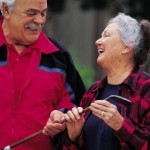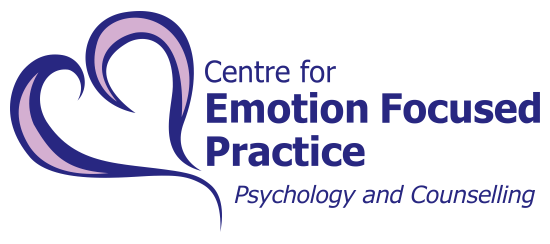The Neuroscience of Relationships
There is nothing more intoxicating than falling in love or being in love. When you first fall in love, it consumes your every thought and seems to encroach on every minute of your day. It is an obsession that overshadows everything in your life. Even serious matters seem that much less so when concentrating on that new attraction in your life.
There is a reason why you feel that way, which has nothing to do with the person you fall in love with. The reason you feel so compelled and irrepressible is because of the chemicals coursing through your body. Natural hormones and chemicals found in your body seem to be on high alert, and dominate almost everything you do, every decision you make, every feeling you have.
Your highs seem higher, your lows, lower – all because of the neuroscience of love.
The Link between Neuroscience and Relationships
Merriam-Webster’s dictionary defines neuroscience as:
“A branch of the life sciences that deals with the anatomy, physiology, biochemistry, or molecular biology of nerves and nervous tissue and especially with their relation to behaviour and learning.”
Naturally occurring hormones and chemicals in the body all have their reasons for being there. Within every person, there is a natural ebb and flow of hormones that keep us balanced and in tune. When a person falls in love, that natural balance becomes completely imbalanced, which is why we begin to act like a love-crazed teen during those first few weeks of falling in love.
Neuroscience can help us understand how chemicals and hormones affect our behaviour while we are in love. It is also a way to explain relationships – why we fall in love, who we fall in love with, why we either stay in love or fall out of it, and so on.
The amount of chemicals in our body alters when we fall in love. The chemicals which are within this realm of neuroscience are testosterone, nerve growth factor, oestrogen, norepinephrine, dopamine, serotonin, vasopressin and oxytocin. Different hormones influence not only our everyday behaviour, but also our sexual behaviour. (Here’s a post on our Facebook page that shows how neurotransmitters rule our life).
There are two different emotional drives of love. There is a drive for attachment and one for attraction. Each of these drives is dictated by a specific amount of chemicals that affect the brain. The chemicals for either drive are in different abundance in the brain of an individual who is experiencing the feelings of love at any level. The chemicals that guide our feelings of attraction and attachment are in much different balance to that of the attachment that we feel to our friends and family members.
Hormones that Peak When in Love
Serotonin is a hormone that is normally responsible for good feeling, happiness, and elation in a person’s body. The absence of it is indicated for certain conditions in the body such as depression and other conditions which can cause stress, anxiety, depression and lead to other physical and emotional ailments. When in love, serotonin is abundant. The original feeling of obsession and infatuation in the first flush of love is triggered in the brain by an increased amount of serotonin. Those ever –resent, obsessive thoughts of the person who is making your heart flutter comes from an increase of serotonin in the brain.

Long-term attachment
Nerve growth factor is the newest chemical which has been indicated as a driving source of the feelings of love. A protein molecule, the levels of it increase when a person first falls in love with another. As people move on from the first flush of love when emotional attraction is at its highest, to later on in their relationship when it gives way to a long-term attachment, the levels appear to plateau off and then decrease. Although found in greater levels in the brain, it is unclear what effect they have on an individual.
Oxytocin is in higher levels during the time when the attraction phase of a relationship begins to decrease and attachment increases. It is in higher levels in those who are in the phase of love that is more closely associated with long-term attachment. Oxytocin is normally present in the body, being the chemical that is released after an orgasm. It is the chemical, which is responsible for the feeling of well being. It is also a chemical, which is in higher amounts after exercise, implying that with an increased heart rate you are bound to be attracted to another person even with just a few minutes of exercise.
Turn to Neuroscience to Better Your Relationship

Missing that key ingredient?
We have research to show us that having an increased amount of specific chemicals and hormones in the brain increases the feelings of both attachment and attraction in individuals. If you are noticing that your relationship is missing that key ingredient, there are ways to improve it by using the principles of neuroscience.
Increasing the hormones and chemicals normally present in the body can significantly affect your sex drive, attraction, and the attachment you feel to another. Although it may not be possible to reach the levels of desire or feelings of elation that you first felt when falling in love, it is possible to increase your feelings of passion toward your mate, and to increase the attachment intimacy that you have with them, simply by boosting the amount of these chemicals in the brain.
Serotonin and oxytocin are both chemicals whose levels can be heightened in the body through physical activity. Not only will exercise increase your attraction and attachment to your partner, it will also make you feel better about yourself. Being attracted to others has a relation to how you feel about yourself. When you increase serotonin and oxytocin in your body, you not only increase your attraction to another, you feel better about yourself, and your sex drive increases too.
There are people who have a decrease in hormones such as serotonin when they have some psychological problems or emotional issues. They not only have a problem with their sexual desire and attraction, they experience problems in other relationships in their lives. Generally, for those who have a decrease in serotonin, psychotherapy is indicated and at times, anti-depressants are prescribed. These will increase the level of serotonin in the body, and help not only with their intimacy and relationship in love, but with all aspects of their feelings of happiness in their lives.
Couples Counselling at the Centre
The following are practitioners at the Centre who have experience with couples and relationship counselling:
To get an appointment or to make enquiries, please call (03) 9820-5577.
Related Articles
- Overcoming Relationship Challenges
- Bring Back the Love and Intimacy
- Couples Counselling
- Family Counselling
- Anxiety in Pregnancy
- How to Support Children through Divorce






Pretty nice post. I just stumbled upon your weblog and wished to say that I have truly enjoyed
surfing around your weblog posts. In any case I will be subscribing for your rss feed and
I am hoping you write again soon!